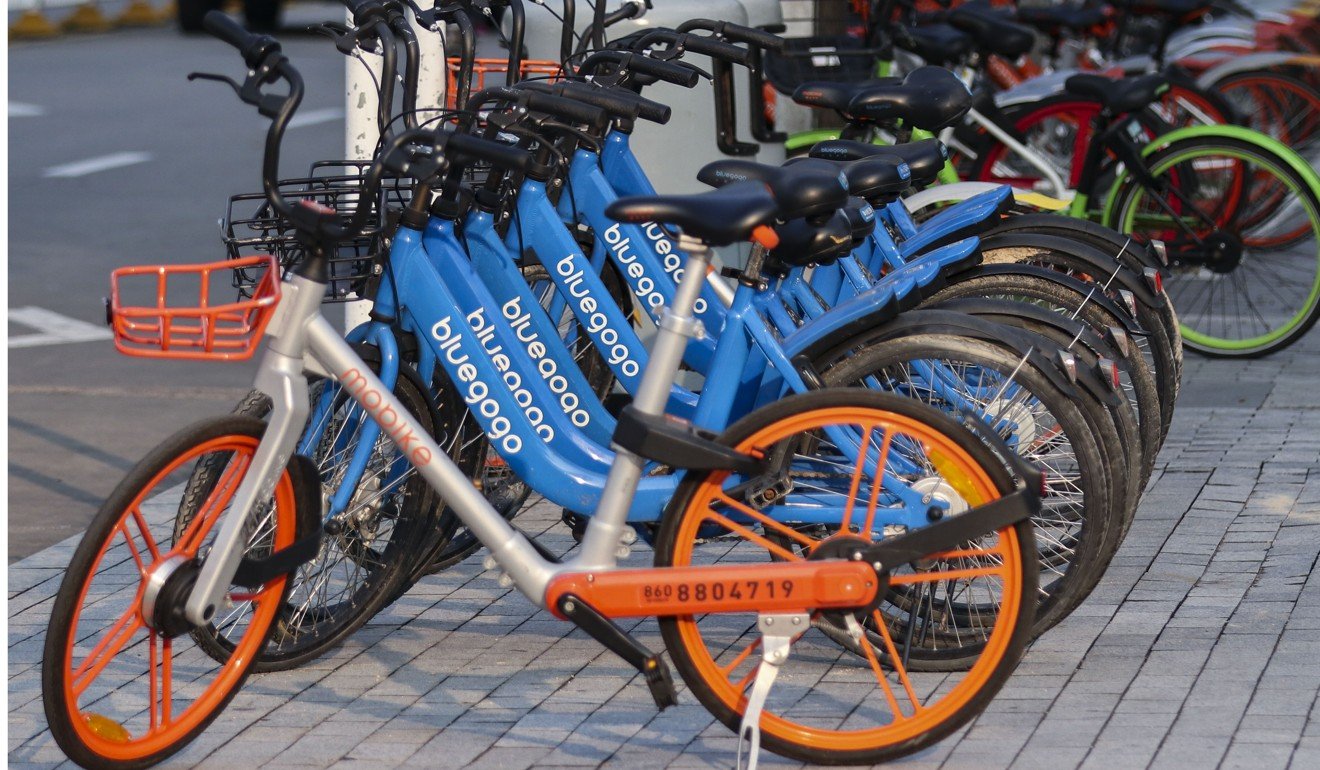
China consumer watchdog takes aim at bike-sharing firm Kuqi over failure to refund deposits
Kuqi Bike has ceased trading, potentially tying up millions of yuan in users’ deposits and highlighting a growing problem in the industry as a shakeout threatens to put more out of business
China’s consumer watchdog has told bicycle-sharing firm Kuqi Bike to return deposits to its users after it ceased trading, as concerns rise about the estimated billions of yuan tied up after a number of similar companies in the industry have run into difficulties.
In an open letter dated Tuesday, the China Consumers Association demanded that Kuqi clarify how the deposits it collected had been used, provide ways to refund the money and assume its legal responsibilities.
“The deposits consumers put down for rental activities are their own property. No company shall have the right of disposal. They should be refunded immediately once the renting is completed,” the association said in the letter.
Beijing-based Kuqi has ceased trading after only a year in business and has been taken over, according to its official Weibo account. It had 16 million registered users, an unknown number of whom had paid deposits of 298 yuan (US$45) each.
The Consumers Association said in the letter that Kuqi had given a fake address for people seeking deposit refunds, and that it had received over 210,000 complaints about the company since August.
Attempts to reach Kuqi were unsuccessful. The three mobile numbers and a hotline it left on its Weibo account for deposit refunds were either engaged or turned off.
It joins other bike-sharing operators in China to stop trading in the face of stiff competition. Last month, the third-largest provider, Bluegogo, closed due to a shortage of cash. Last month Guangzhou-based Mingbike stopped operating after numerous complaints by customers that they had been unable to reclaim their 199 yuan deposits. Wukong Bike, based in the western city of Chongqing, shut down just five months after its launch in January, racking up losses of nearly US$150,000.

The industry could be worth 23.7 billion yuan by 2019, according to consultancy iResearch, and is set to be dominated by the top two players, Mobike and Ofo – both Beijing-based and valued at more than US$1 billion each. But the number of operators has already shrunk from its peak of about 100, according to iResearch.
“The gold rush is over,” said Shi Rui, an iResearch analyst. “Smaller companies won’t survive unless they get more funding.”
The main problem facing bike-share firms is that, unlike the car ride-sharing business pioneered by Uber and its Chinese equivalent Didi Chuxing, bike operators have to buy tens of millions of bicycles and pay for staff to maintain and repair them. Car-sharing firms simply connect passengers with vehicle owners.
At the same time, the cost of a bike ride is a pittance – about 1 yuan for an hour – with much cheaper deals available. In a recent promotional campaign to lure riders from its competitors, Mobike offered unlimited rides for three months for only 5 yuan, while Ofo has a similar incentive scheme.
The fact that revenues cannot cover the high running costs is expected to drive more consolidation, even including the possible merger of the top two, according to Wang Hui, an analyst with Analysys.
Nevertheless, investors have been happy to put money into the industry. Bike-sharing platforms have attracted US$2 billion in funding over the last 18 months, putting them among the most popular investments for private equity, venture capitalists and angel investors.
Part of the attraction, analysts said, is that beyond rental revenue and prospects for advertising, bike-sharing companies have proved to be effective in promoting mobile payments, and in collecting user data that can give insights to marketing companies and businesses.

